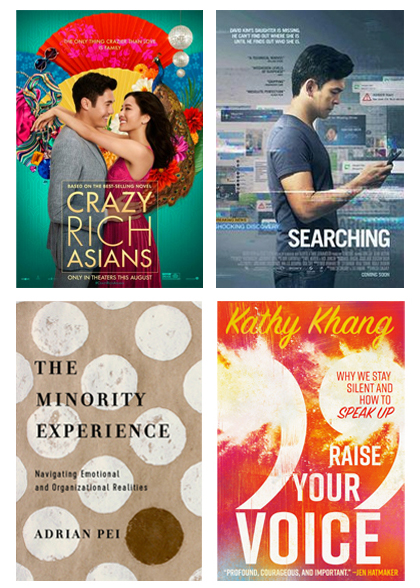It’s September, yeah, but Asian August forever and ever…
For someone who is not a fan at all of rom-coms, I thoroughly enjoyed Crazy Rich Asians — and, apparently, so do well over $100 million worth of other ticket buyers. Mindy Kaling expresses so much of what makes CRA great here and here and here and here and here (for reals, Mindy, use the thread feature!).
However, I found myself identifying more naturally with David Kim, the father character played by John Cho in Searching. As Director Aneesh Chaganty put it so well in this great live podcast episode of It’s Been A Minute:
In most films with Asian American actors, Aneesh said, “You usually have to explain — what is the Asian hook? Like, why is this family Asian?” But in Searching, he said, “there’s nothing about this film that explains it.”
That an actor of any race could have played the lead, John added, is precisely the point. “The fact that it doesn’t have to be an Asian-American film makes me want to claim it as an Asian-American film,” he said.
Also, key takeaway: No vlogging. Ever.
Semi-spoiler alert: Does that intro rival Up, or what? I sort of wish I had been given an emotional heads-up beforehand!
_____________________
On top of all this, having smart, tenacious, faithful, talented Asian American friends who also happen to be authors sharing much-needed insight & guidance? You can read my review of Adrian Pei‘s fantastic book, The Minority Experience: Navigating Emotional and Organizational Realities, here.
I’ll post a more robust review soon (hopefully!), but for now I’ll say this: Kathy Khang is the real deal and Raise Your Voice: Why We Stay Silent and How to Speak Up reflects her authenticity and passion. Particularly in this surreal age in which we live, silence is not an option for people of good faith and good will. As Elie Wiesel says, “We must take sides. Neutrality helps the oppressor, never the victim. Silence encourages the tormentor, never the tormented.”





